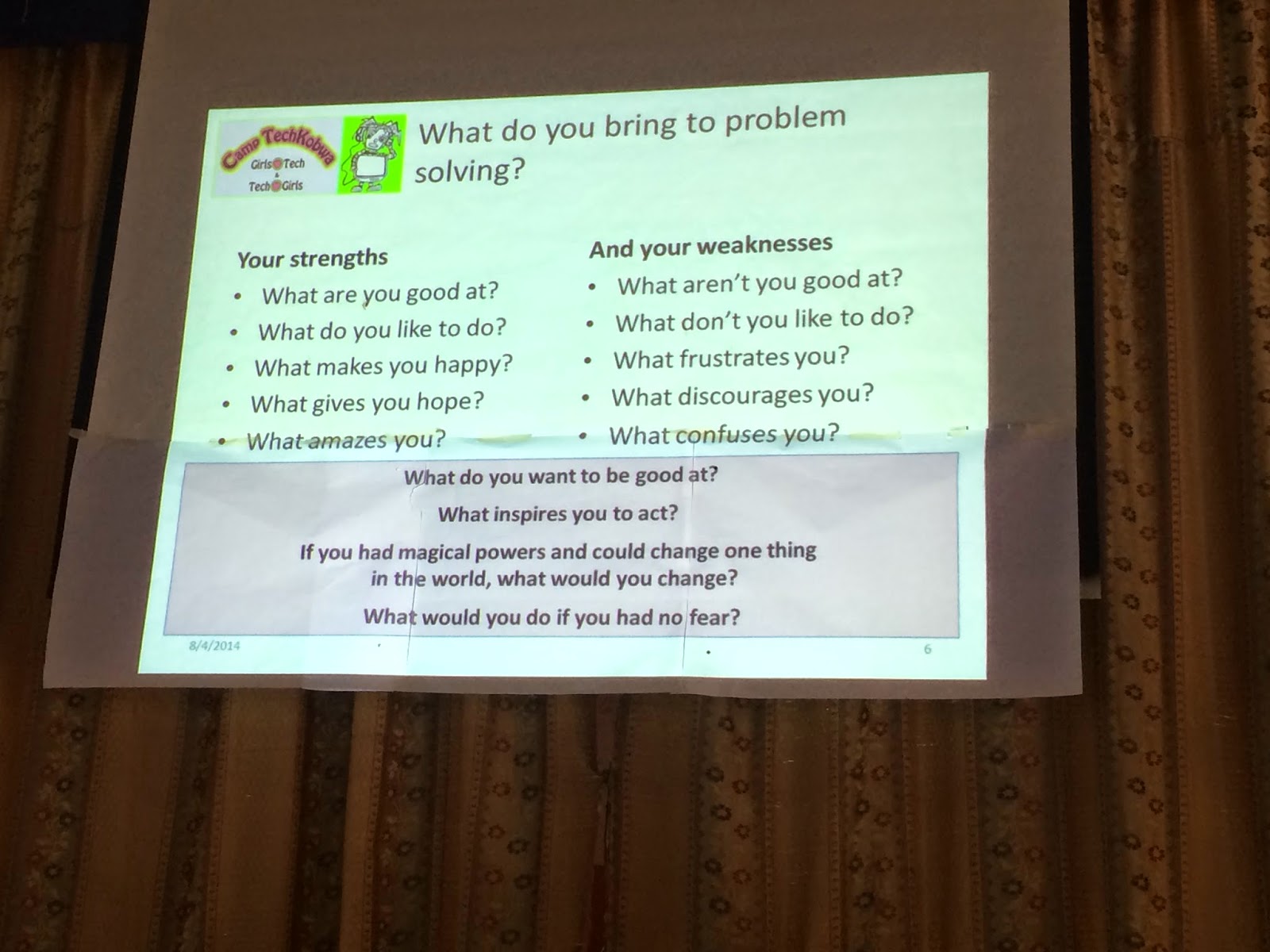- Day 1: Self-Confidence
- Day 2: Finding Your Voice
- Day 3: Written Communication
- Day 4: Oral Communication
- Day 5: Setting Goals
- Day 6: What to do after Camp
In self-confidence, students learned different ways people convey self-confidence. But they also learned the importance of feedback to building self-confidence. As an exercise, campers drew a flower and had another person tape the flower to their back. Then campers walked around the room with a pen in hand and were to write affirmations about other campers on their flowers. At the end of the exercise, campers learned that many people notice and appreciate things about them that they never realized.
Finding Your Voice began by asking campers who they admired and what was different about those people. They were also asked who invented the mobile phone. This was used to demonstrate that most problems are not solved by one person but by teams of people contributing from their diverse backgrounds over time.
Women inventors associated with mobile phones were featured such as Katherine Blodgett who invent the glass used on mobile phones, Hedy Lamarr who created the secure message transmission used in mobile technology, Randince-Lisa Altschul who invented the hand-held mobile phone, and Krisztina Holly who invented visual voice used for voice messaging for many mobile phones. This provided the campers with female role models in technology.
Finding Your Voice included an exercise where campers reflected on their strengths and weaknesses, thinking about how our weaknesses often are what inspire us to invent. For example Randice-Lisa Altschul was frustrated (a weakness) with her mobile phone in the days when they were large, clunky contraptions. She was so frustrated she wanted to throw it out the window but it was too big and too expensive. This sparked her, a toy inventor, to create the small handheld mobile phone we use today.
 |
| Questions for the self-reflection exercise |
 |
| Research project teams practicing the 5 Levels of Why using their project topic |
Students learned about organizing their thoughts as well as answering the 5 Ws of writing: Who, What, When, Where and Why. Using an interactive lesson, campers learned how to categorize different types of information based on whether it pertained to the Who, What, When, Where or Why of their topic.
 |
| Emily introducing the Five Ws exercise |
 |
| Students organizing information according to the Five Ws |
The Written Communications module ended with campers completing a worksheet about their research project that documented their objective, their outline and the 5Ws. Students used these worksheets during the module where they created their research project's presentation.
Anna gave campers many excellent tips for effective public speaking during the Oral Communications module. She emphasized the importance of preparing your material, your environment, and yourself before speaking. Campers learned that self-confidence is directly related to being prepared. They also learned that practicing a presentation is key to feeling fully prepared.
 |
| Anna using good public speaking techniques as she teaches about public speaking |
 |
| Origene translating Anna's comments into Kinyarwanda |
Liz taught the ICT teachers the module on Goal Setting and in turn the ICT teachers led their students through the material. Students were asked to define short and long-term goals and then to create a plan of specific actions they could take to achieve their goals.
In the final Life Skills module, campers and the ICT teacher from their school were asked to develop plans for sharing what they learned at camp with other students at their school. Campers came up with ideas for creating technology clubs or teaching ICT concepts even in environments that lacked electricity or the internet.
The objective of the Life Skills modules were to increase the individual campers' skills in confidence and communication and then to use those skills to create a ripple effect by training more students than were able to attend camp. Thus in addition to building technical skills, girls developed their leadership skills and were asked to create a plan to use those leadership skills to take Camp TechKobwa home with them.
Louise and colleagues at the TechKobwa camp!
ReplyDeletewhat you folks are doing is simply fantastic.
It must be so satisfying to be able to contribute in such life changing ways, to a society that has gone through such traumatic times!
wonderful!